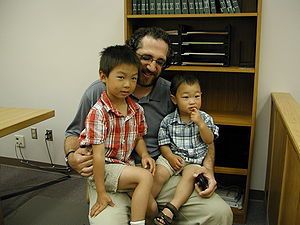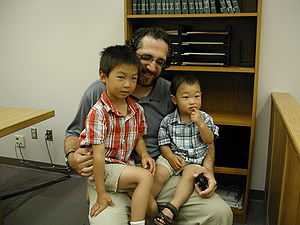As an aside in a piece about young couples who decline to have children, Gabriel Fluhrer noted that, “If you are providentially hindered from having children, perhaps the Lord is calling you to adopt children.” This is a fairly conventional observation, and I agree without reservation with his use of “perhaps”. In many cases, a frustrated desire for children can develop into a call to adopt.
But every time? I’m not sure.
Before going further, I should note that Gabriel Fluhrer does not deserve to be the jumping off point for this post. That is, this will be a fairly critical post, but Fluhrer is not my target. Yet his passing comment brings up something that I have found unsettling in current evangelical discussions about adoption.
I want to push back against a convention that seems to be developing in evangelical circles that if you are without children, and did not wish to be so, you ought to adopt. There is a subtle shift in adoption from a good option for a childless couple into something like a moral obligation. Or at least, a suggestion that if adoption is so good and praiseworthy, that it is bad and unworthy not to feel a call to it in such circumstances.
Again, I am not accusing Fluhrer of saying this. He is only mentioning adoption as a way that the blessing of children can be offered even to those who are unwillingly childless. But in our broader context, and without the qualification that adoption is an extraordinary calling, his phrasing can serve as an unintended source of anxiety and frustration.
Adoption can, of course, be a beautiful image of Gospel truth. As said in a chorus I remember from church when I was kid, sung after most baptisms:
I'm so glad I'm a part of the family of God!
I've been washed in the fountain, cleansed by His blood!
Joint heirs with Jesus as we travel this sod;
For I'm part of the family, the family of God.
We are adopted by the Father in grace, part of God’s household as heirs rather than as mere beggars or guests. (Though that would still be a blessing, indeed!)
Adopting a stranger’s child into one of our earthly households can be a fitting, almost typological, expression of that theological truth. Just as God adopts sinners, without regard for worthiness or merit, into His household, so we adopt orphans into our own. In that light, adoption is a good deed indeed, a gloriously fitting action for a Christian couple.
It is important to remember in the Christian life, however, that there can be a world of difference between a good action and a command. For one, possible good deeds are far more numerous than express commands. Barnabas was not required to sell his land and donate the proceeds for the widows and orphans. It was an outpouring of the spirit of Christian generosity. Ananias' error was not keeping part of his money. Peter's denunciation of him made it clear:
While it remained unsold, did it not remain your own? And after it was sold, was it not at your disposal? Why is it that you have contrived this deed in your heart? You have not lied to man but to God. (Acts 4:36-5:4)
God commands us to be generous and to care for widows and orphans, but He does not specify the amount. Barnabas chose to act it out in an extreme way. Ananias' error was to treat that free outworking as the standard and to pretend to obey it.
The ways that we can act and live to glorify God are almost limitless, and no one lifetime would give the opportunities to do more than a small cross-section of what is possible. And as comparatively few as the obligatory commands are, one lifetime does not suffice to learn to consistently fulfill them all, even with God’s gracious help.
Our possibilities for good service are so great, and our opportunities to sin so easy to come by, that it is important not to confuse the two. We do not honor God as Lord and as loving Lawgiver if we make a command in His name where He has not spoken. That is one of the first instructions Moses gave to Israel before they entered the Land:
Login to read more
Sign in or create a free account to access Subscriber-only content.

